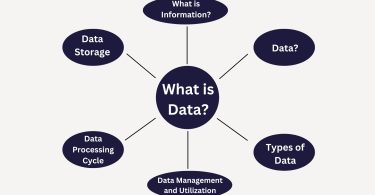In the domain of technology and innovation, two disciplines emerge as key players: Data Science and Computer Science. Both are instrumental in shaping our digital world and propelling advancements across various sectors. Yet, the perennial question arises: which holds greater value? To navigate this inquiry, it’s imperative to delve into the distinct characteristics, applications, and career trajectories of each field.
Understanding Data Science and Computer Science:
Data Science:
Data Science revolves around extracting insights and knowledge from vast datasets, amalgamating statistics, mathematics, programming, and domain expertise. It encompasses a wide array of tasks, including data collection, cleaning, analysis, visualization, and interpretation. Data Scientists harness diverse tools and methodologies such as machine learning, data mining, and predictive analytics to distill actionable insights driving decision-making processes.
Computer Science:
Conversely, Computer Science centers on the study of algorithms, data structures, programming languages, software development, and computational theory. It spans numerous sub-disciplines, from software engineering to artificial intelligence, computer networks, and cybersecurity. Computer Scientists are tasked with crafting and optimizing software applications, systems, and algorithms to tackle intricate challenges and amplify computational efficiency.
Contrasting Features:
Focus and Application:
Data Science is primarily geared towards leveraging data to uncover insights, make forecasts, and steer organizational strategies.
Computer Science, on the other hand, emphasizes the creation, refinement, and enhancement of software, algorithms, and computational systems.
Skill Set:
Data Scientists necessitate proficiency in programming languages like Python or R, statistical modeling, data manipulation, and machine learning methodologies.
Computer Scientists thrive on expertise spanning programming languages, algorithmic paradigms, data structures, software development methodologies, and system architecture.
Tools and Technologies:
Data Science relies on an arsenal of tools and platforms such as Jupyter Notebooks, TensorFlow, Pandas, and Tableau for data analysis, visualization, and modeling.
Computer Science makes use of programming languages like Java, C++, or JavaScript, alongside frameworks and libraries tailored for software development such as Django, React, or Angular.
Synergies and Intersections:
While Data Science and Computer Science exhibit distinctive focuses and skill requisites, significant overlap exists between the two domains. Concepts and techniques from each field often converge, fostering collaborative endeavors and synergistic outcomes:
Data Scientists harness algorithms and data structures from Computer Science to optimize computational workflows and refine data processing pipelines.
Conversely, Computer Scientists integrate machine learning algorithms and statistical methodologies from Data Science to pioneer intelligent systems and predictive models.
Career Opportunities:
Both Data Science and Computer Science present a myriad of career avenues across diverse industries including technology, finance, healthcare, e-commerce, and beyond. The demand for adept professionals in both domains continues to surge as organizations seek to harness data-driven insights and innovative technologies to gain a competitive edge:
Data Scientists are coveted for their prowess in dissecting data, constructing predictive models, and distilling actionable insights to steer business strategies.
Meanwhile, Computer Scientists play a pivotal role in spearheading software development, shaping system architecture, fortifying cybersecurity, and exploring emerging frontiers like artificial intelligence.
Conclusion:
Ultimately, the preference between Data Science and Computer Science hinges on individual inclinations, career aspirations, and the specific domain of interest. While Data Science accentuates the scrutiny and interpretation of data to extract meaningful insights, Computer Science is anchored in the creation and refinement of software and computational frameworks. Nonetheless, both fields offer promising career prospects, and professionals equipped with expertise in both realms are aptly poised to thrive in our dynamic digital ecosystem. Emphasizing the synergy between Data Science and Computer Science underscores the imperative of interdisciplinary collaboration in driving transformative innovations and addressing multifaceted challenges in the digital era.



